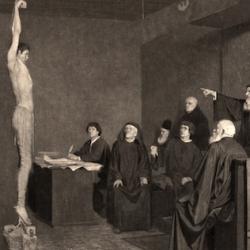For a decade and a half in the middle of the twentieth century, two scientists, James McConnell and Georges Ungar attempted to determine whether memories can be transferred chemically from one organism to another. No one believes anymore that this can be done, but that’s not, according to Harry Collins and Trevor Pinch, because it was disproven. They write in The Golem: What You Should Know About Science that “In spite of the widespread demise of the credibility of the chemical transfer of memory, a determined upholder of the idea would find no published disproof that rests on decisive technical evidence. For such a person it would not be unreasonable or unscientific to start experimenting once more. Each negative result can be explained away while many of the positive ones have not been” (25).
Why then does no one believe it? “We no longer belief in memory transfer but this is because we tired of it, because more interesting problems came along, and because the principal experimenters lost their credibility. Memory transfer was never quite disproved; it just ceased to occupy the scientific imagination” (25).
This is one of the case studies that Collins and Pinch explore to shock readers into seeing science as it is, a human endeavor: “The shock comes because the idea of science is so enmeshed in philosophical analyses, in myths, in theories, in hagiography, in smugness, in heroism, in superstition, in fear, and, most important, in prefect hindsight, that what actually happens has never been told outside a small circle.” Golem Science is a clumsy and dangerous,” and “may destroy its maters with its flailing vigour.” Collins and Pinch hope “to learn to love the bumbling giant for what it is” (1-2).















